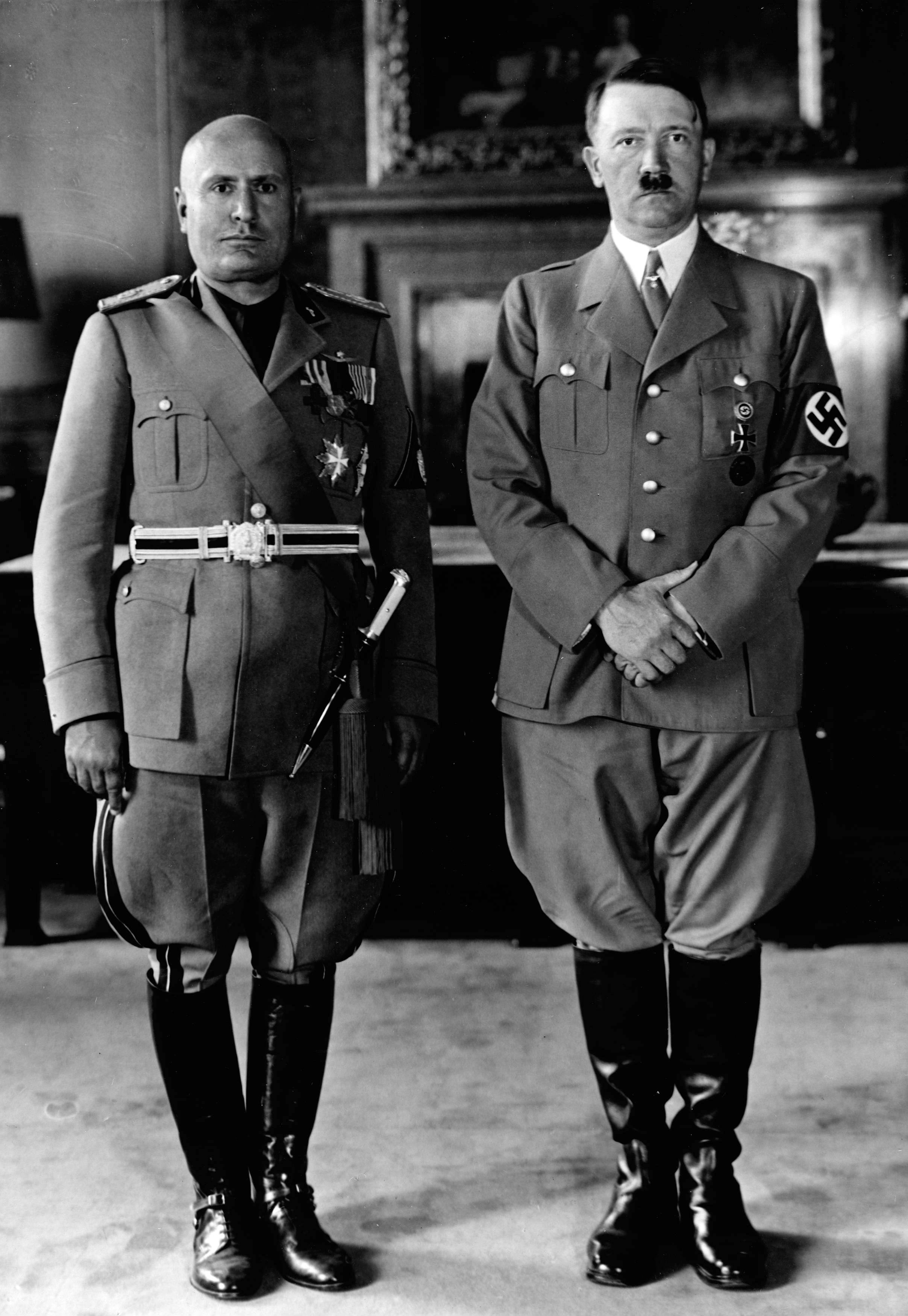
Fascism
Fascism (/ˈfæʃɪzəm/ FASH-iz-əm) is a far-right, authoritarian, ultranationalist political ideology and movement,[1][2][3] characterized by a dictatorial leader, centralized autocracy, militarism, forcible suppression of opposition, belief in a natural social hierarchy, subordination of individual interests for the perceived good of the nation and/or race, and strong regimentation of society and the economy.[2][3]
For other uses, see Fascism (disambiguation).
Fascism rose to prominence in early 20th-century Europe.[4][5] The first fascist movements emerged in Italy during World War I before spreading to other European countries, most notably Germany.[4] Fascism also had adherents outside of Europe.[6] Opposed to anarchism, democracy, pluralism, liberalism, socialism, and Marxism,[7][8] fascism is placed on the far-right wing within the traditional left–right spectrum.[4][8][9]
Fascists saw World War I as a revolution that brought massive changes to the nature of war, society, the state, and technology. The advent of total war and the mass mobilization of society erased the distinction between civilians and combatants. A military citizenship arose in which all citizens were involved with the military in some manner.[10] The war resulted in the rise of a powerful state capable of mobilizing millions of people to serve on the front lines and providing logistics to support them, as well as having unprecedented authority to intervene in the lives of citizens.[10]
Fascism rejects assertions that violence is inherently negative or pointless, instead viewing imperialism, political violence, and war as means to national rejuvenation.[11][12] Fascists often advocate for the establishment of a totalitarian one-party state,[13][14] and for a dirigiste[15][16] economy, with the principal goal of achieving autarky (national economic self-sufficiency) through economic interventionist policies. Fascism's extreme authoritarianism and nationalism often manifest as a belief in racial purity or a master race, usually blended with some variant of racism or discrimination against a demonized "Other", such as Jews, homosexuals, ethnic minorities or immigrants. These ideas have motivated fascist regimes to commit massacres, forced sterilizations, deportations, and genocides.[17] During World War II, the actions of the fascist Axis powers, with their genocidal and imperialist ambitions, caused the death of millions of people.
Since the end of World War II in 1945, fascism as an ideology has been largely disgraced and few parties have openly described themselves as fascist; the term is more often used pejoratively by political opponents. The descriptions of neo-fascist or post-fascist are sometimes employed to describe contemporary parties with ideologies similar to, or rooted in, 20th-century fascist movements.[4][18] Some opposition groups have adopted the label anti-fascist or antifa to signify their stance.[19]
Etymology
The Italian term fascismo is derived from fascio, meaning 'bundle of sticks', ultimately from the Latin word fasces.[3] This was the name given to political organizations in Italy known as fasci, groups similar to guilds or syndicates. According to Italian fascist dictator Benito Mussolini's own account, the Fasces of Revolutionary Action were founded in Italy in 1915.[20] In 1919, Mussolini founded the Italian Fasces of Combat in Milan, which became the National Fascist Party two years later. The fascists came to associate the term with the ancient Roman fasces or fascio littorio,[21] a bundle of rods tied around an axe,[22] an ancient Roman symbol of the authority of the civic magistrate[23] carried by his lictors.[24]
The symbolism of the fasces suggested strength through unity: a single rod is easily broken, while the bundle is difficult to break.[25] Similar symbols were developed by different fascist movements: for example, the Falange symbol is five arrows joined by a yoke.[26]